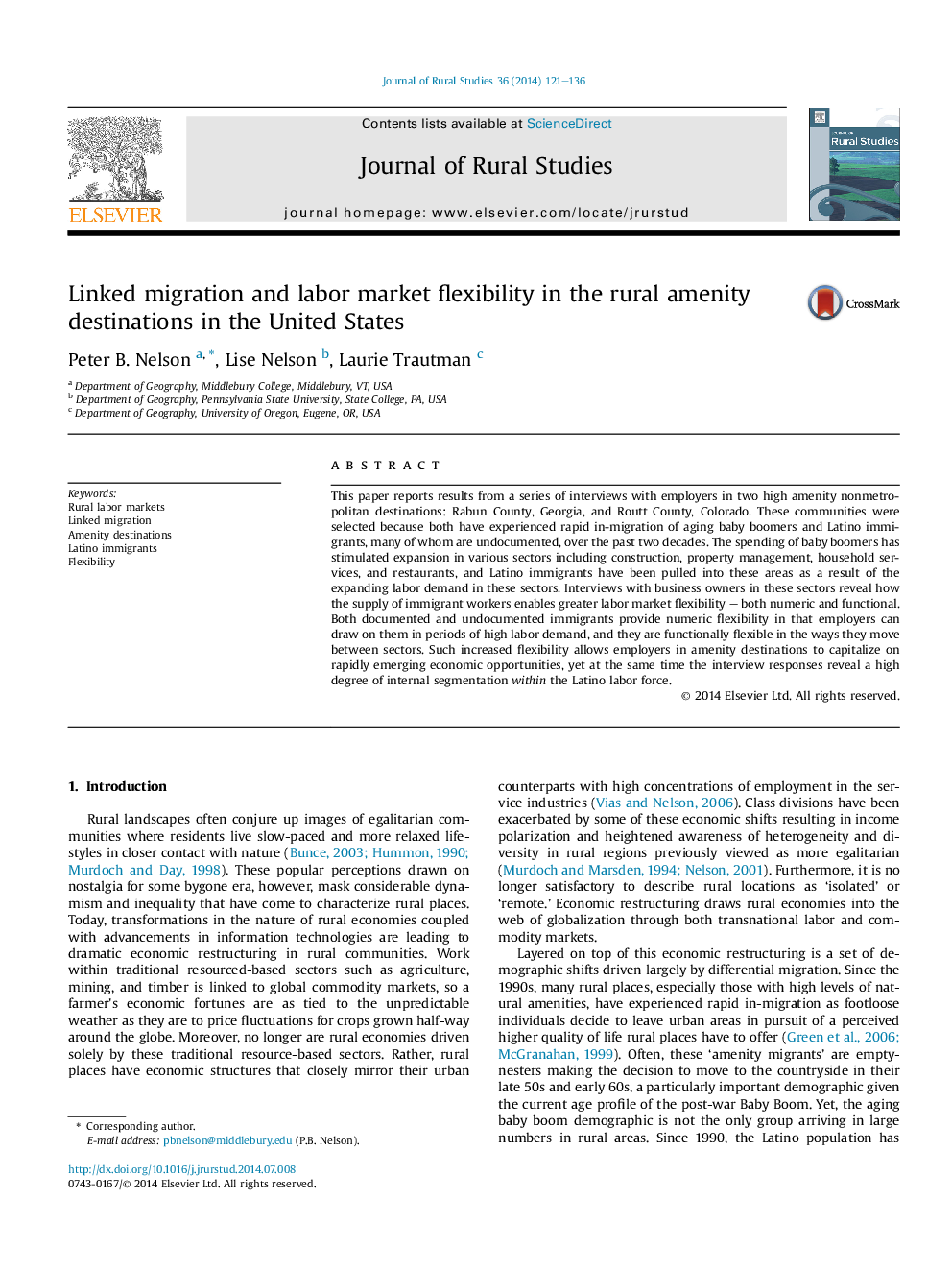| Article ID | Journal | Published Year | Pages | File Type |
|---|---|---|---|---|
| 6545731 | Journal of Rural Studies | 2014 | 16 Pages |
Abstract
This paper reports results from a series of interviews with employers in two high amenity nonmetropolitan destinations: Rabun County, Georgia, and Routt County, Colorado. These communities were selected because both have experienced rapid in-migration of aging baby boomers and Latino immigrants, many of whom are undocumented, over the past two decades. The spending of baby boomers has stimulated expansion in various sectors including construction, property management, household services, and restaurants, and Latino immigrants have been pulled into these areas as a result of the expanding labor demand in these sectors. Interviews with business owners in these sectors reveal how the supply of immigrant workers enables greater labor market flexibility - both numeric and functional. Both documented and undocumented immigrants provide numeric flexibility in that employers can draw on them in periods of high labor demand, and they are functionally flexible in the ways they move between sectors. Such increased flexibility allows employers in amenity destinations to capitalize on rapidly emerging economic opportunities, yet at the same time the interview responses reveal a high degree of internal segmentation within the Latino labor force.
Related Topics
Life Sciences
Agricultural and Biological Sciences
Forestry
Authors
Peter B. Nelson, Lise Nelson, Laurie Trautman,
